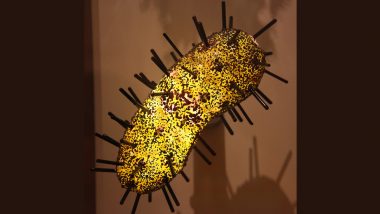We are in the middle of a pandemic, battling each day to contain the further spread of coronavirus that has created panic around the globe. Millions have been infected, and countries hit hard by the virus have adopted stringent measures to contain the spread. Amid the rising tension, China has sounded an alert after a suspected case of bubonic plague, also known as ‘black death’ was reported in Bayan Nur, northern Inner Mongolia Autonomous Region. A level III warning of plague prevention and control has been issued. The suspected bubonic plague case was reported on July 4, by a hospital in Bayannur. How did it spread? It is not clear. But the alert asks people to immediately report any sick or dead marmot, (large and heavy rodents that resemble squirrels). So, what is the bubonic plague? Are Black Death and the bubonic plague the same? What are the symptoms? What is the history of bubonic plague? What stopped the plague? You must be having a lot of queries running in your mind at the moment. In this article, we will answer all the Frequently Asked Questions (FAQs) related to bubonic plague.
What is a Bubonic Plague?
According to the World Health Organisation (WHO), bubonic plague is caused by the bacteria called Yersinia Pestis. It is a zoonotic bacteria which is usually found in small mammals and their fleas. The symptoms of the disease usually appear after the incubation period of one to seven days. The disease is spread from bites of fleas that have fed upon infected creatures like rats, rabbits and squirrels. How William Shakespeare and Issac Newton Utilized Their Time Working From Home During Quarantine and Pandemic.
What Are the Symptoms of Bubonic Plague?
According to the Centers for Disease Control and Prevention (CDC) patients develop sudden onset of fever, headache, chills and weakness and one or more swollen, tender and painful lymph nodes, also called buboes. If the patient is not treated with appropriate antibiotics, the bacteria can spread to other parts of the body.
Is the Black Death and the Bubonic Plague the Same?
Victorian scientists dubbed the bubonic plague as Black Death. The disease spread like wildfire through Europe during the 1340s and 1350s. It claimed millions of lives; an estimated two-thirds of the European population was killed because of the plague. The survivors of the plague also called it the Great Pestilence. However, with the availability of antibiotics, the disease is treatable now. What is Bubonic Plague? From Symptoms to How Fatal it is, Here's Everything You Need to Know About 'Black Death' as China City Reports Suspected Case.
What Stopped the Black Plague?
There are many theories, but none really has yet provided a definitive answer as to how the plague actually ended. The most popular theory on how the plague ended is through the implementation of quarantines. The uninfected remained in their homes and only left when it was necessary. Again those who could not afford the same would go more densely populated areas and live in greater isolation. Again, the improvements in personal hygiene were also taken place during the time.
Does the Black Death Still Exist?
As per WHO, from 2010 to 2015, there were 3,248 cases of the plague reported worldwide resulted in 584 deaths. It is most common in the Democratic Republic of Congo, Madagascar and Peru.
As of now, not much information is available as to how the bubonic plague spread in China. WHO stated that human-to-human transmission of the bubonic plague is rare. But any person with the pneumonic plague, when the plague advances to the lungs, can be transmitted via droplets to other humans.
(The above story first appeared on LatestLY on Jul 06, 2020 03:44 PM IST. For more news and updates on politics, world, sports, entertainment and lifestyle, log on to our website latestly.com).













 Quickly
Quickly



















